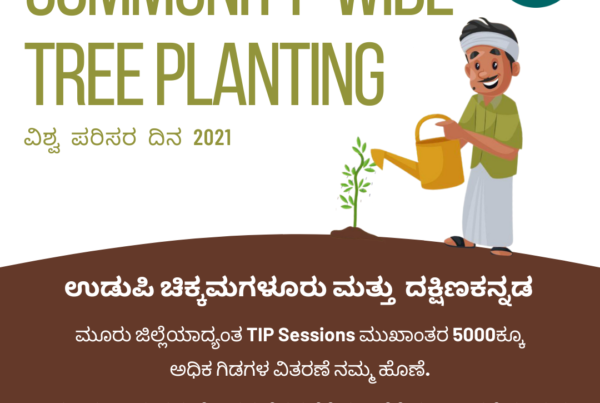India is one of the most biodiverse countries in the world. Although India only makes up 2% of the world’s landmass, it accounts for 10% of the world’s biodiversity. It’s home to animals like the Bengal tiger, Asiatic lion, and the Nilgiri tahr. These animals are an essential part of their ecosystem, and they carry heavy cultural and economic significance to human beings.
Why you should care?
Overfishing and the destruction of seabeds in coastal Karnataka have led to a serious problem for the local ecosystems. The destruction of breeding grounds means less fish, loss of livelihoods for local fishermen and less income for the state. Similarly, the loss of keystone species like bees and other pollinators means that human beings might not be able to survive very long.
For an ecosystem to function smoothly, every organism in that ecosystem needs to play its part. Since all species including insects, trees and human beings are interlinked, it means that human life is dependent on the survival of other species. For example, if bees were to die out, plants would be unable to pollinate, most species, including human beings, would collapse without food and oxygen. Similarly trees depend on species like koalas, sloths, and monkeys to disperse seeds.
Biodiversity also plays a significant role in indian culture. All major Indian religions incorporate some form of nature. National symbols like the tiger, the lion, and the elephant (Karnataka’s state animal) are all threatened. The sandalwood tree is also vulnerable to extinction.
How you can help
Protect local biodiversity – Regardless of where you live, there is most likely a delicate ecosystem around you. Set up a watering hole for insects in your garden. If possible, provide plant cover for birds, insects and reptiles that might need a place to rest.
Reduce, reuse, recycle – The more you consume, the greater the strain you put on resources. Reducing your consumption and reusing and recycling what you already have means that less green cover is destroyed.
Eat responsibly- When shopping, choose food that is organically grown. Inorganic farming practices cause chemical runoff in water bodies, leading to the deaths of animals and vegetation.
Travel sustainably- Many biodiversity hotspots are increasingly feeling the effects of tourism. The construction and maintenance of hotels often require the felling of trees, disruption of wildlife, and they require a lot of resources. Choose hotels and campgrounds that leave local wildlife as undisturbed as possible.
Educate and advocate -The more people that fight for biodiversity, the bigger difference we can make. Educate yourself on the importance of biodiversity and advocate the people around you.



